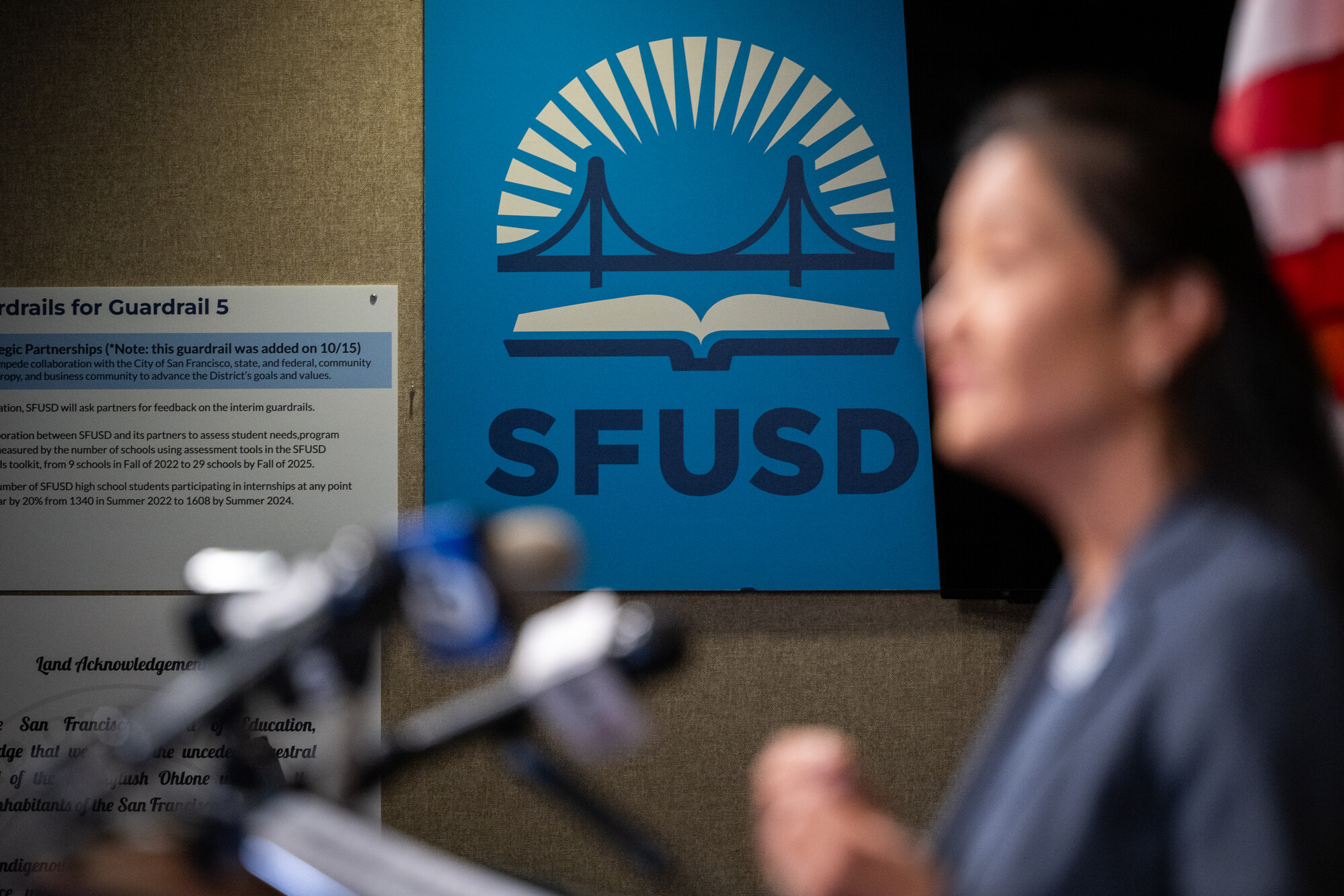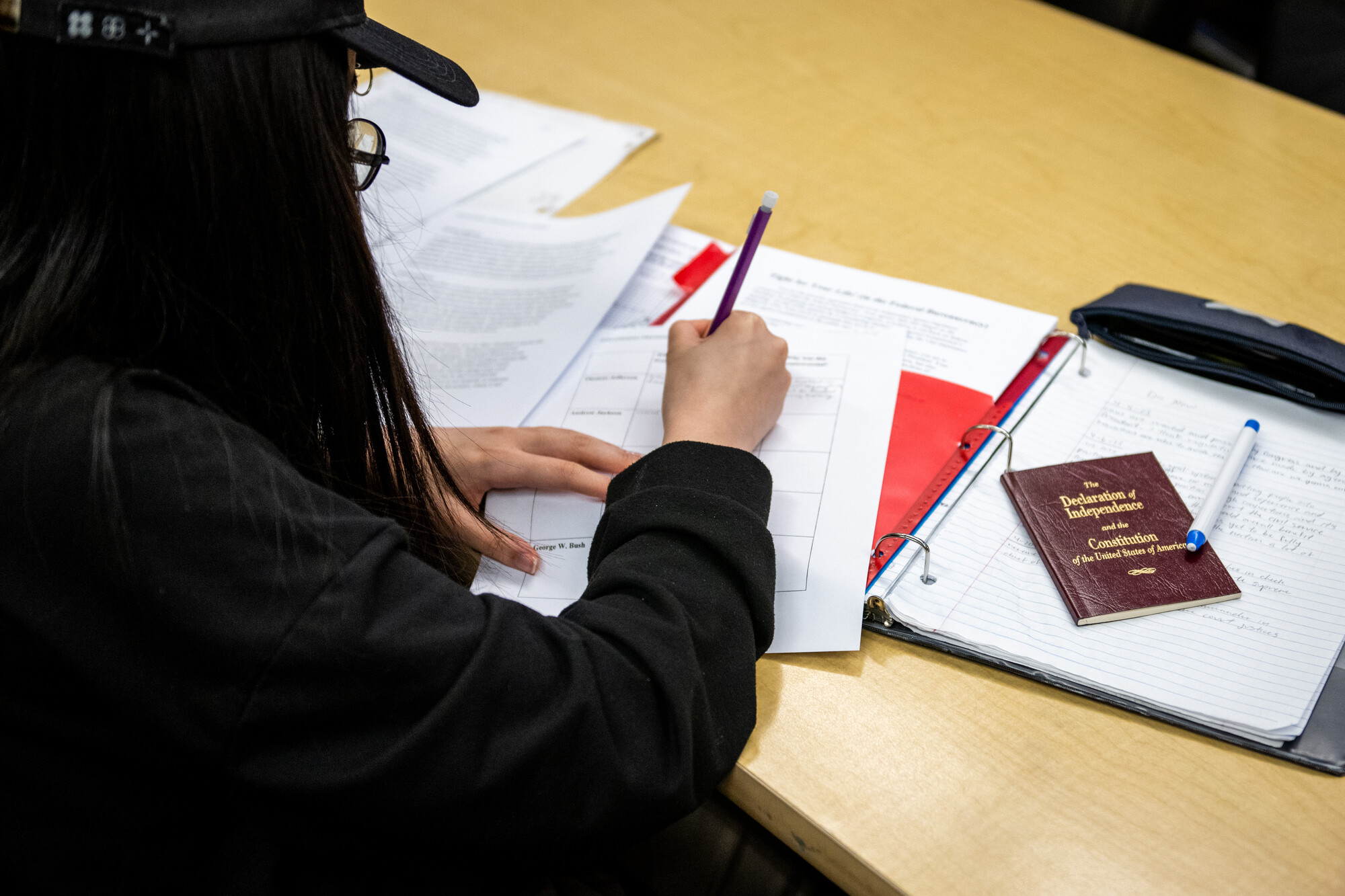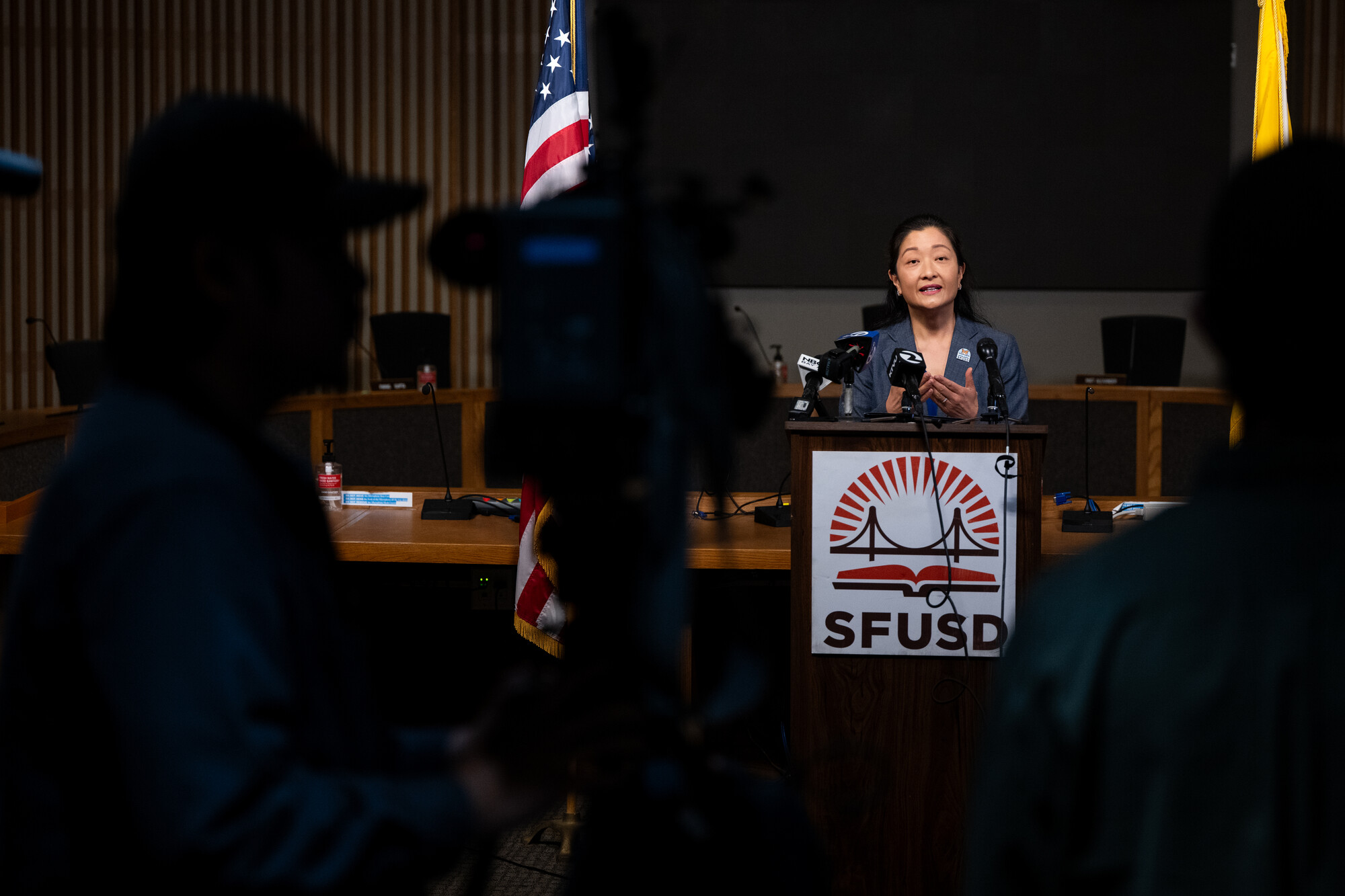After controversy over its ethnic studies program, San Francisco’s school district announced Monday that it would continue teaching the class but put a pause on its homegrown curriculum to audit course materials.
Last week, ethnic studies teachers, district employees and a school board member raised alarms after they said Superintendent Maria Su met with school leaders to discuss a possible plan to pause the San Francisco Unified School District’s ethnic studies program entirely. For months, the course had come under fire from some parents who found it biased and “activist-driven.”
The district said Monday that it plans to keep ninth graders enrolled in ethnic studies this fall, but it will pilot a new interim curriculum used by other California school districts that meets state board of education guidelines as it reviews its own program.



